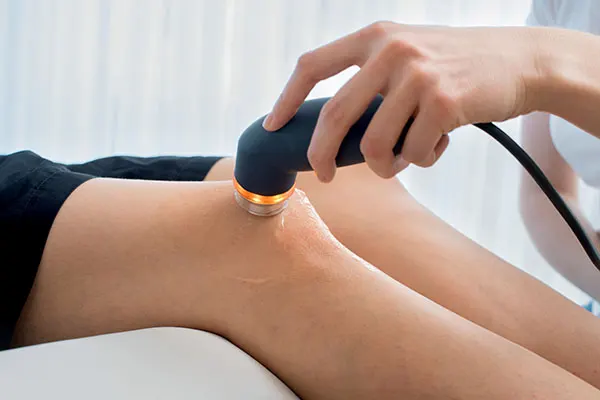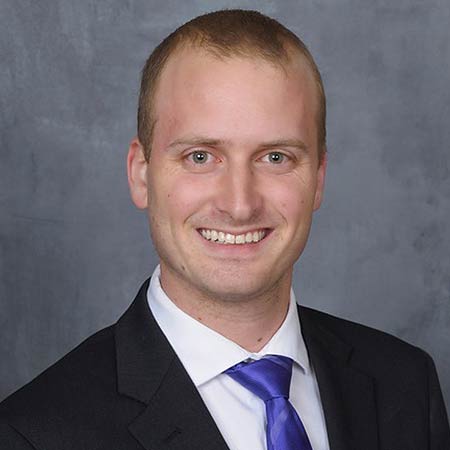The cold & flu season is in full effect! - Strengthen your immunity with IV Vitamin Therapy now!
Therapeutic ultrasound is a noninvasive treatment which utilizes low energy ultrasound waves to make vibrations and/or increase the temperature of body tissue in a targeted zone, alleviating pain and relaxing stiff muscles. The treatment may also dissolve scar tissue and promote circulation and lymph flow to enhance healing of the affected area. It is usually used to address chronic pain and minor orthopedic injuries.

Ultrasound waves are created when an electrical charge is applied to the tiny crystal that is within the ultrasound machine. These waves will pass through the ultrasound head — or transducer — and are released to the affected soft tissue during treatment, enhancing circulation and oxygen delivery resulting in therapeutic benefits. Prior to treatment, a section of skin near the injured area or where the pain arises is selected. A gel is then applied, sometimes with a combination of a topical anti-inflammatory medication, to the targeted site and/or to the ultrasound’s transducer head. The practitioner then glides the transducer over the targeted area of skin in circular motions. During treatment, the practitioner may adjust the settings on the ultrasound machine to calibrate the intensity or depth of penetration, subject to the injury’s present state of healing and the depth of the damaged tissue. Throughout the treatment, the patient is awake and typically feels nothing except the slight pressure of the transducer. For some people, they may experience tingling, warmth in the area or a slight pulsing sensation, but the treatment is generally painless.
Two main types of ultrasounds are used for pain management: thermal and mechanical.
Thermal Ultrasound
Thermal ultrasounds are typically used for pain relief from minor orthopedic injuries such as sprains and strains. In the course of the procedure, a deep heat is delivered by an ultrasound machine to a targeted site of the body. It will penetrate to the damaged tissues, warming the area to lessen pain, encourage circulation and enhance the healing process.
Mechanical Ultrasound
On the other hand, in mechanical ultrasound, the ultrasound machine carries weak vibrations to soft tissue in the injured site, dissolving scar tissue and stimulating gas bubbles to form near the injury. These bubbles will expand and contract, easing the swelling and inflammation and encouraging soft-tissue healing.
Therapeutic ultrasound usually needs a direct contact between the transducer and the patient’s skin. However, an alternative delivery approach can be opted when the affected area is somewhat bony.
Some parts of the body, particularly the hands and feet, are too bony and uneven for conventional ultrasound delivery. In water immersion ultrasound, the affected area that needs treatment is dipped in water and the transducer is positioned about one centimeter above the skin instead of coming in direct contact with it. This disallows resistance and lets the practitioner effectively provide ultrasound waves to the targeted area.
If you believe you could benefit from high-quality care, consider getting treatment from the staff at Wellness First Medical & Chiropractic Center. Our dedicated staff will be pleased to answer your questions today. We can also help you schedule a time to visit our Dickinson, TX office.
Call Us: (281) 337-3337 to make/change your appointment Or email us at: frontdesk@wellnessfirstmedicalcenter.com
Meet our Chiropractor
Dr. Donna Sanders, DC
Clinic Director
For over 32 years, Dr. Donna Sanders, DC has been dedicated to serving people in the surrounding communities of Galveston County with the most up to date, holistic, chiropractic care.

Meet our Chiropractor
Dr. Ross Baird, DC
Dr. Ross Baird, DC is a 2017 graduate of Texas Chiropractic College. He is also an alumni of Texas A&M, having majored in Biology. Through his own life experiences and health challenges, Dr. Baird is passionate about helping his patients not only with acute injuries, but also at deeper levels of health and wellness.

Please fill out the form below to learn more about our services. *are required fields.
Monday: 8am-12pm | 2pm-6pm
Tuesday: 8am-12pm | 2pm-6pm
Wednesday: Closed
Thursday: 8am-12pm | 2pm-6pm
Friday: 8am-12pm | 2pm-6pm
Saturday: Closed
Sunday: Closed